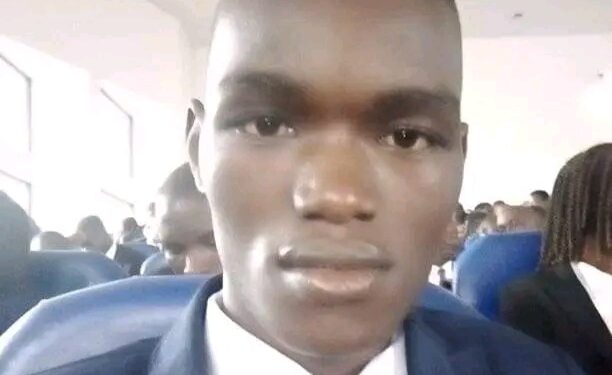The root causes of the security crisis in eastern DRC and the Great Lakes region cannot be resolved solely with military forces. All countries in the Great Lakes region should understand that peace in one country is dependent on peace in the other.
Eastern DRC, where there is limited state presence, is considered the rear base and refuge of foreign armed groups that engage in incursions in neighboring countries like Rwanda, Uganda and Burundi. For those neighboring countries, this provides ‘legitimate’ cause for their militaries to invade Eastern DRC under the pretext of stopping those groups.
The rapid detoriation of security in Eastern DRC and resurgence of M23 could be an outcome of the long standing enmity between Uganda and Rwanda. There are immediate and previous reasons for this escalation, because the latter indicates a profound level of mistrust at all levels between DRC, or with the backing of Uganda or any other powers, towards Rwanda.
By this, Tshekedi could either be a Ugandan ploy in his own DRC or any other foreign power in Africa or across the world to get rid of Kagame hegemony in Kigali incase the mistrust erupts into a full scale direct cross border military confrontations between Kinshasa and Kigali. Unless the underlying problems between Uganda and Rwanda are addressed, we might see the M23 problem and the mistrust in Kinshasa as the only way to solve the Kigali Kampala long term rivalry, even if battalions of regional forces are deployed. This is the lesson we have learnt from the previous Uganda Rwanda intervention in DRC
Uganda and Rwanda were on a war footing as recently as 2019. They reopened their border in January 2022, after a 3 year closure, but tensions remain palpable and have been worsened by Uganda’s recent moves in the DRC. However, rather than launching direct attacks on each other, the two countries appear to have shifted into a familiar pattern of fighting proxy wars. This means that the prospects of a general disarmament in the region particularly of M23 are likely to be frustrated unless these differences are resolved
In June 2022, Rwanda and the DRC accused each other of firing rockets across their shared border. The DRC authorities also alleged that Rwanda deployed hundreds of soldiers in disguise on Congolese soil. On June 17, the DRC closed its border with Rwanda after a Congolese soldier was shot dead on Rwandan soil after an alleged incident with Rwandan border guards. Without a vigorous confidence-building process between the two sides, a wider interstate conflict is a strong possibility. This would likely draw in Uganda and possibly Burundi on the side of the DRC. Without a vigorous confidence building process between the two sides, a wider interstate conflict imminent
For its part, the DRC accuses Rwanda of violating its sovereignty by supporting the Mouvement du 23 Mars (March 23 Movement, M23). The rebel group, along with multiple others, is active in the DRC.
The recent United Nations report supports Kinshasa’s contention. A group of experts on the Democratic Republic of Congo detailed its accusations in a 131-page report. Kigali, however, dismissed the findings as “false allegations”.
Pointing the finger at Rwanda with claims that it had irrefutable proof of their aggression, Kinshasa decided to expel Rwanda’s ambassador in the DRC at the tail end of the higher council of defense meeting held on 29 October, which was chaired by President Felix Tshisekedi.
Rwanda, for its part, has always rejected Kinshasa’s accusations and accused the DRC of supporting the FDLR (The Democratic Forces for the Liberation of Rwanda), an armed group opposed to the government in Kigali and operating on Congolese soil since the 1994 Rwandan Genocide.
These accusations on both sides accentuate the mistrust and tensions between not only the leaders, but also the communities of these two countries, which are historically and geographically fated to live together. But, kindly note that incase of any confrontation between Kigali and Kinshasa, that will be the end of the 1994 revolution, and the millions of Hutu scattered in exile in the entire great lakes region, and refugee camps for over 28 years, will be able to return home. But then after, it is kindly to note that, the Ugandan 1986 revolution will be isolated as well, only left at the mercy of Western powers
However, if the crisis does not result in open warfare between Rwanda and the DRC, at least in the short term, though the stakes are high, it will leave tragic consequences for the people of eastern DR Congo, which should never be underestimated, and these will create real possibilities for inadvertent escalation.
Byamukama Richard Bard is a Lawyer and a Masters Student in Security and Strategic Studies. Trained from Kabalye National Police Training School and also attended the Great Lakes Institute of Security and Strategic Studies.
Do you have a story in your community or an opinion to share with us: Email us at editorial@watchdoguganda.com













